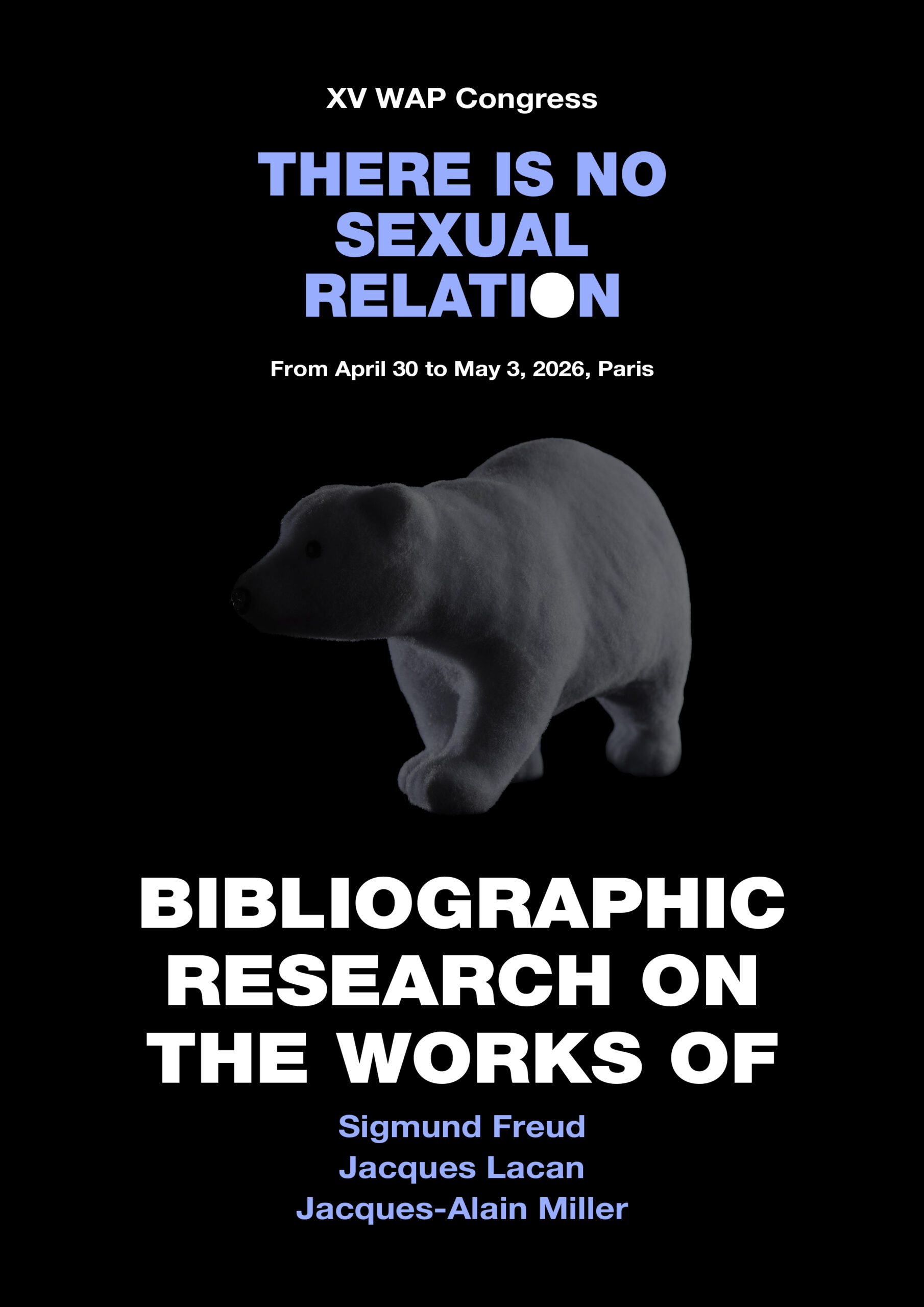Editorial
Over the past several months, I had the privilege of working with a team of English-speaking colleagues to prepare the English-language bibliography for the upcoming 2026 Congress of the World Association of Psychoanalysis, centered on the theme of There Is No Sexual Relation. What began as a bibliographic task unfolded, for me, as a formative experience — one that illuminated how the work we do in the School is deeply homologous to the work we do in the clinic.
The first phase of the project was devoted to what Jacques-Alain Miller, in Analysis Laid Bare[1], has called amplification[2]. We cast a wide net. We returned to Freud, to Lacan, and Miller, and combed through their work with the theme of the Congress in mind. The guiding principle was not to "prove" the theme, nor to provide a series of theoretical affirmations, but to extract fragments — concepts, formulations, provocations — that touched upon the question of the sexual non-relation, even if only obliquely. This was not a work of systematization. It was a work of discovery. And like in the clinic, this phase required desire: a desire to listen, to read anew, and to be surprised by what emerges when one approaches a known text from a different angle.
And then came the second phase, the phase of reduction. Here again, I found myself reflecting on what Miller stated in Analysis Laid Bare about what follows the work of amplification -the work of reduction.[3] Reduction is not the inverse of amplification, nor is it a "correction" of excess. It is a matter of orienting ourselves toward what is essential — what resonates with the theme in a way that can produce an effect, that can sustain thought and provoke invention. To reduce, in this sense, is not to cut arbitrarily. It is to make a cut that reveals something, a cut that separates the contingent from what insists. We had to let go of many quotes that were rich, fascinating, or even personally meaningful, but that lacked a sufficient link to help us elaborate on what the theme of the congress has provoked.[4]
The experience taught me something about how our work in the School and our work in the clinic are not merely parallel, but structurally similar. In both cases, there is a movement between openness and closure, between the richness of what appears and the rigor of what counts. In the clinic, we listen widely, we allow the subject to amplify, to wander, to circle the thing. But then, at the right moment, we act. A cut must be introduced. Something must be reduced — not to silence, but to signification. And not to the already-known, but to the singular.
To curate a bibliography, one might think, is a scholarly task. But to do so in a School such as ours, under a theme such as this, is to be drawn into the real of psychoanalysis. The sexual non-relation is not a doctrine, but a fault-line — an absence that conditions the very possibility of speech and desire. To produce a bibliography around it is, paradoxically, to brush up against what resists documentation. We work not to define it, but to circumscribe it—to write around it, as Lacan might say.
This is why the work was not only demanding but exhilarating. It reminded me that even in the so-called administrative or intellectual tasks of the School, we are doing psychoanalysis. We are engaging with texts, with concepts, and above all with our own relation to the real.[5] We are amplifying and reducing, discovering, cutting, speaking, listening, and elaborating new knowledge that allows us to renew our desire to continue our work.
If the bibliography we produced offers something useful to the Congress, it is because it came not only from our reading, but from our desire — informed by the School and shaped by the clinic.
Neil Gorman (AP-NLS/WAP)
[1] Miller, J.-A. Analysis Laid Bare. Trans. A. Duncan, New York: Lacanian Press, 2023.
[2] Ibid, pp. 23-26.
[3] Ibid, pp. 23-35, 42-51.
[4] Miller, J-A. "Five Variations on the Theme of 'Provoked Elaboration." Trans. L. Clarke and F. Shanahan. 4 + One: The NLS Cartels' Newsletter, no. 5 (February 2018).
[5] Miller, Jacques‑Alain. 2000. The Turin Theory of the Subject of the School. Presentation at the 1st Scientific Conference of the Scuola Lacaniana di Psicoanalisi, Turin, May 21, 2000. Translated by Heather Menzies and Vincent Dachy. Psychoanalytic Notebooks, no. 33 (June 2019): 87–112. Accessed July 30, 2025. https://www.amp-nls.org/orientation/turin-theory-of-the-subject-of-the-school/.
Readers: Jared Elwart, Peggy Papada (AP) NLS/WAP, Jonathan Redmond, Carlos Rivas, Renata Teixeira (AP) NLS/WAP, Leila Yabiku.
Editing by: Isolda Alvarez (AP) NLS/WAP, Thomas Svolos (AP) NLS/WAP.


